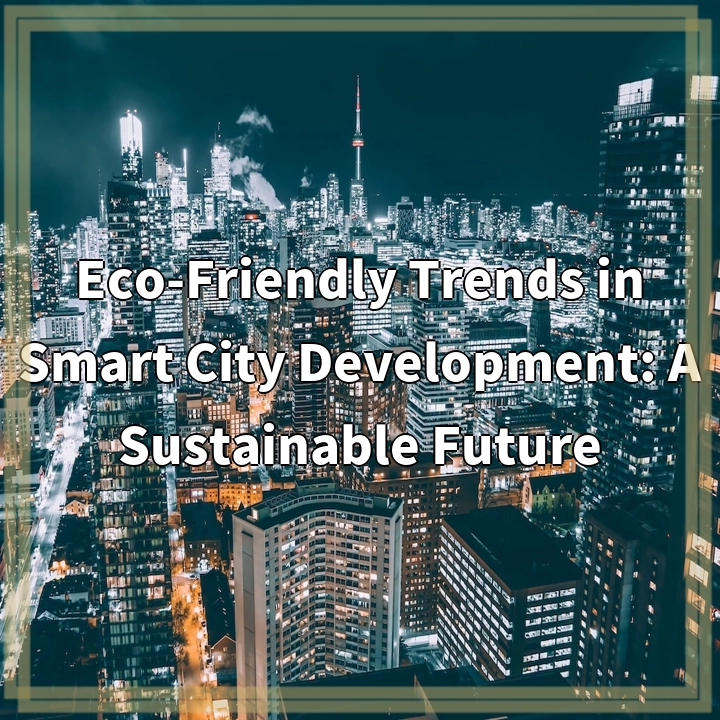
What it is:
Smart city development is an urban planning approach that integrates technology and innovation to create sustainable and efficient urban environments. It involves the use of various digital technologies, data analytics, and Internet of Things (IoT) devices to optimize resource management, improve infrastructure, enhance quality of life, and reduce environmental impact.
Real-World Problems:
While smart city development holds great potential for creating a sustainable future, it also faces several real-world challenges that need to be addressed. These problems include:
Inequitable Access:
One of the main issues with smart city development is ensuring equitable access to its benefits. As digital technologies become more prevalent in urban environments, there is a concern that marginalized communities and low-income individuals may be left behind, exacerbating existing social and economic inequalities. It is essential to bridge the digital divide and ensure that smart city initiatives are inclusive and accessible to everyone.
Data Privacy and Security:
Smart cities rely on the use of vast amounts of data collected from various sources, including sensors, devices, and public services. This data can be highly sensitive and poses potential risks to privacy and security if not handled properly. Governments and organizations must implement robust data protection measures, secure networks, and transparent data governance frameworks to safeguard individuals’ privacy and prevent cyberattacks.
Infrastructure Integration:
A significant challenge in smart city development is the integration of various infrastructure systems. Smart cities require seamless connectivity and communication across multiple sectors, such as transportation, energy, waste management, and water supply. Coordinating these systems and ensuring interoperability can be complex and costly. Additionally, retrofitting existing infrastructure to accommodate smart technologies can pose logistical challenges.
Environmental Impact:
While smart city development aims to reduce environmental impact, it also presents certain challenges. The increased use of digital technologies and sensors can lead to a surge in energy consumption and electronic waste. Additionally, the deployment of new infrastructure, such as 5G infrastructure for connectivity, may require significant resource extraction and construction activities. It is important to mitigate these environmental impacts and ensure that smart city initiatives prioritize sustainable development and circular economy principles.
Public Acceptance and Engagement:
Another critical challenge is gaining public acceptance and engagement in smart city initiatives. The success of these projects greatly relies on the active involvement and support of the community. Ensuring that citizens are informed, engaged, and have a say in decision-making processes is crucial for the development of sustainable and people-centric smart cities.

Solutions to Real-World Problems:
To address the challenges associated with smart city development and create a sustainable future, the following solutions can be implemented:
Promoting Digital Inclusion:
Ensuring equitable access to smart city technologies and services can be achieved through initiatives that promote digital inclusion. Governments and organizations can invest in education and training programs to enhance digital literacy among all members of society. Additionally, providing affordable access to internet connectivity and technology devices is crucial to bridge the digital divide and empower marginalized communities.
Enhancing Data Privacy and Security:
To address concerns about data privacy and security, comprehensive measures must be implemented. This includes adopting robust data protection regulations and frameworks, promoting transparency in data collection and usage, and implementing reliable cybersecurity protocols. Governments and organizations should also educate citizens about their rights regarding data privacy and provide clear avenues for addressing any concerns.
Promoting Interoperability and Collaboration:
To overcome the challenges of integrating various infrastructure systems, fostering collaboration and interoperability is crucial. Governments, organizations, and stakeholders must work together to create standardized protocols and frameworks that enable seamless communication between different systems. This includes promoting open data standards and ensuring the compatibility of smart technologies across various sectors.
Implementing Sustainable Practices:
To minimize the environmental impact of smart city development, sustainable practices must be integrated into every aspect of urban planning. This includes the use of renewable energy sources, promoting energy efficiency, adopting circular economy principles, and reducing electronic waste. Utilizing innovative technologies such as smart grids and energy-efficient buildings can contribute to the overall sustainability of smart cities.
Fostering Public Engagement and Participation:
To ensure the success and acceptance of smart city initiatives, public engagement and participation should be prioritized. Governments and organizations must involve citizens in the decision-making process, seeking their input and considering their concerns. Regular communication and transparent information sharing can help build trust and foster a sense of ownership among the community.















